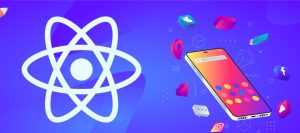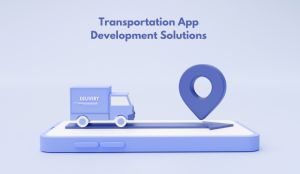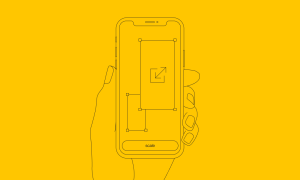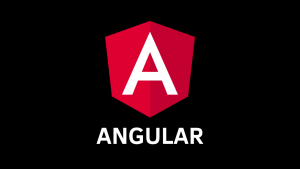Benefits of IoT Apps For Healthcare Industry

In this technology-driven world, you may have heard about several revolutionary technologies such as machine learning, artificial intelligence, virtual reality, and IoT. These state-of-the-art technologies are considered to be one of the biggest inventions of the current industrial revolution. With such great capabilities, it’s a no-brainer that they bring a wave of transformation to virtually every industry, and healthcare is no exception.
Being a never-ending network of physical devices, IoT has the potential to bring the technical aspects of the healthcare industry together and offer the most flourishing transformation to it. Moreover, according to several reports, IoT service providers have decided to prioritize the progression of IoT in healthcare once the pandemic comes to an end.
The healthcare industry is on the verge of seeking technical transformation to enhance patient care, and IoT is prepared to support the revolutionary progress!
On a side note, the healthcare industry is growing at an unbelievable pace, and it’s more difficult than ever to determine the next game-changing innovation of the world. The statistics are given below signify how IoT healthcare applications are full of promising advancements in medicine, testing, and patient-care:
- According to an estimate by the Business Insider, the healthcare industry is expected to save a staggering amount of $300 Billion with the adoption of the Internet of Medical Things.
- An infographic published by Safe at Last reveals that 70% of the most-selling wearables are designed for fitness and healthcare purposes, and collect data to allow users to gain insights into their wellness.
- As per a recent report by Statista, the total revenue of healthcare-related IoT devices is estimated to grow over $135 billion by the end of 2025.
- In an article published by Digiteum, it’s stated that 40% of IoT devices in the market are related to healthcare.
With the figures stated above, it’s surely evident that the technological advancements and trends associated with healthcare are emerging and redefining the industry to a great extent. Moreover, with the current momentum, it’ll continue revolutionizing the industry and make patient care a lot better. Let’s have a look at how IoT apps benefit the healthcare industry:
- Alerts and Insights
There are various life-threatening situations in which real-time alerts and tracking mechanisms can prove to be a lifesaver for a patient in critical health conditions. IoT enables hospitals to utilize notifications and updates related to analysis, monitoring, and diagnosis to take better care of their patients. In addition to reducing raw data, it also allows professionals to derive data-based analytics and insights that help in speeding up the decision-making process and reduce errors.
- Transparent Insurance Claims
While health insurances are crucial for the future financial stability of an individual’s dependents, a lot of people also consider it as an instrument to gauge money from insurance companies. With the help of IoT, insurance companies can use health monitoring devices and collect information to determine false claims. This not only saves insurance companies thousands of dollars but also makes sure that the actual needy gains the funds easily with quick verification.
- Constant Monitoring and Reporting
IoT-enabled connected devices allow healthcare organizations to monitor data in real-time and save potential lives by informing about chronic medical emergencies such as asthma attacks, heart stroke, and diabetes at the right time. Moreover, hospitals can also consider hiring developer someone for healthcare app development to collect useful health-related data from their patients. The technology can easily extract and share detailed information regarding factors like blood pressure and sugar levels.
- Contactless Medical Assistance
The worst thing that could ever happen with a person suffering from a medical condition is not being able to find a doctor because of several factors such as lack of knowledge and the friendly neighborhood Coronavirus. However, with the fledgling progress in IoT, this concern appears to be vanishing away from the healthcare industry. Healthcare app development integrated with IoT allows patients to seek medical assistance right from the comfort of their homes.
- Medical Research Progress
It takes several years for any medical research to accomplish, but the results are surely worth the wait. IoT can prove to be greatly assistive for medical research because it offers real-time data that can be used to study a particular behavior, disease, or pathogen statistically and closely. Additionally, it will also greatly reduce the expenses involved with particular research, which allows the medical spectrum to grow even more.
Healthcare Related IoT Gadgets
Wearables
One of the widely recognized smart gadgets trending for healthcare services are wearables. These gadgets are regularly implemented in the form of watches, bands and other trackers that gather all the important information like heart rate, pulse, blood sugar, blood pressure, etc. and send the data to the professional.
On a wearable level there is an increasing use of specific wearables across all parts of the body such as the next gen hearing aids, implantable wearables, shrewd contact lenses, skin patches and so on.
Hearables
Hearables come under the wearable section, wherein it provides organizations with the capacity to obtain and follow up on user data, while providing users with the ability to interface with online services without being aware of the UI
The Scotland’s National Health Service (NHS) defined the expanding class of hearables as follows: “Devices that are primarily intended to allow streaming of media to the device but that also offer a hearing enhancing function not dissimilar to a hearing aid.”
Hearables are offering endless possibilities in medical care and fitness apart from smart ear pieces. Hearables are used to obtain the benefit of functions like measuring heart rate, monitoring sleep, calorie tracking, and so on. Moreover, the introduction of Google assistant, Alexa and Siri are definitely adding to the rising popularity of hearables.
Ingestible Sensors
Ingestible sensor is a pill-sized electronics that provide your smartphone with information after you swallow it. Mostly the sensor measures pH, temperature, and pressure or whether the patient has taken medications or not.
The sensor comprises a small microphone bundled in a silicone case. The pill likewise incorporates the electronics that process the raw info measurements and sends them to an external receiver within some range. For example, an ingestible sensor installed in the pill can record that the prescription was taken – sending signal to a wearable patch that sends the information to a mobile application.
According to Grandview research, the global ingestible sensors market size in 2016 was valued at USD 491.0 million and is anticipated to witness a CAGR of 19.1% by 2024.
Also, another report by marketsandmarkets states that the ingestible sensor market is expected to grow at a CAGR of 20.2% between 2016 and 2022 that is from USD 198.2 Million in 2015 to USD 678.2 Million by 2022.
The Takeaway
With the growth of healthcare app development using the capabilities of IoT, the industry is certainly driving towards a better and more productive future. From patient care and data analytics to medical research, this revolutionary technology can certainly make the pace of medical evolution a lot faster, and make healthcare much more reliable and efficient for people. The benefits listed above surely highlight the transformative capabilities of IoT.






